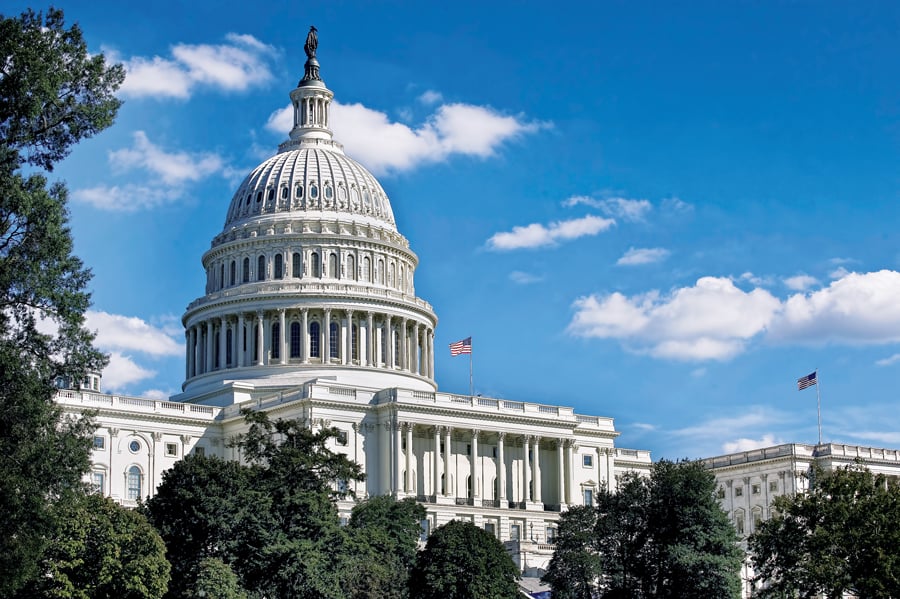

Legislation that contains several provisions to stop major SEC rule proposals affecting financial advisors stalled in the House Thursday, and the so-called policy riders face a difficult legislative path ahead.
The House postponed a final vote on an appropriations bill that would fund the Securities and Exchange Commission and several other federal agencies when Republicans couldn't agree on some non-SEC parts of the bill. There was enough dissension for party leaders to pull the bill from the floor of the chamber, where the GOP holds a 221-212 majority.
The disagreements involved a provision that would affect abortion policy in Washington, D.C. and other policies, according to a report by Bloomberg News.
The funding bill would provide $2 billion for the SEC, a $170.4 million cut in the agency’s current budget. It contains riders that would prevent funding for the SEC to complete proposed rules for public-company climate disclosure, investment advisor custody of client funds and mutual fund reform, among others.
During House floor debate, lawmakers approved amendments that would prohibit funding for SEC rules on advisor conflicts related to the use of predictive data analytics, advisor ESG disclosures, cybersecurity and private funds.
The riders in the original bill and the amendments were mostly driven by the GOP, which reduces their viability as Congress continues its work to reach a budget agreement. Democrats hold a 51-49 Senate majority.
“Very few of these policy riders are likely to survive,” said Neil Simon, vice president for government relations at the Investment Adviser Association. “Senate Democrats are highly unlikely to go along with [those] that have been inserted into appropriations bills in the House.”
Some Democrats have joined Republicans in raising alarm about — or even blasting — SEC proposals, such as one that would impose swing-pricing rules on mutual funds and the measure targeting financial advisors’ use of predictive data analytics when working with investors.
But it’s one thing to disagree with SEC policies and another to deny funding for rulemaking, said Bonnie Johnston, senior policy counsel at The LXR Group, a government relations consulting firm.
“There are some questions and concerns as to the scope of some of the rulemakings or even concerns about specific provisions in rulemakings, such as the swing pricing rule, but large-scale efforts to defund the SEC or even directly attacking specific rulemakings are unlikely to get the support needed to end up in any final funding bill,” Johnston said.
Lawmakers must agree on some kind of government funding legislation next week to prevent a shutdown that would occur at the end of the day on Friday, Nov. 17, when federal funding runs out. Republicans may push for SEC riders during negotiations on a short-term continuing resolution or a longer-term measure.
Given political tensions in the House — where Republicans deposed former House Speaker Kevin McCarthy, R-Calif., in part over the continuing resolution that was approved in late September with Democratic support — it’s hard to predict how things will unfold.
“This year, everyone’s crystal ball is a little bit murkier,” said Jason Rosenstock, a partner at Thorn Run Partners, a government relations consulting firm. “Some of these riders may fall by the wayside, but House Republicans are going to push them. It will depend on what Senate Democrats can tolerate.”
The Biden administration also will be part of the negotiations. The White House opposed the House appropriations bill containing SEC funding in part because of various policy riders.
The pushback on Capitol Hill could influence the SEC to modify some of its proposals. But Congress is not likely to force the agency to do so.
“It would be very unlikely to do that through direct legislation,” Johnston said.
The SEC funding bill, called financial services and general government, is one of several pieces of appropriations legislation that have failed to get through the House as the shuttering of the federal government looms. The Senate is working on funding proposals as well.
“There’s a significant chance we could have a government shutdown,” Simon said. “I don’t think anyone knows how all of this plays out.”

Firms in New York and Arizona are the latest additions to the mega-RIA

The agent, Todd Bernstein, 67, has been charged with four counts of insurance fraud linked to allegedly switching clients from one set of annuities to another.

“While harm certainly occurred, it was not the cataclysmic harm that can justify a nearly half billion-dollar award to the State,” Justice Peter Moulton wrote, while Trump will face limits in his ability to do business in New York.

Sieg, 58, was head of Merrill Wealth Management, left in 2023 and returned that September to Citigroup, where he worked before being hired by Merrill Lynch in 2009.

Technology can do a lot of things, but advisors still have undeniable value
Orion's Tom Wilson on delivering coordinated, high-touch service in a world where returns alone no longer set you apart.
Barely a decade old, registered index-linked annuities have quickly surged in popularity, thanks to their unique blend of protection and growth potential—an appealing option for investors looking to chart a steadier course through today's choppy market waters, says Myles Lambert, Brighthouse Financial.
